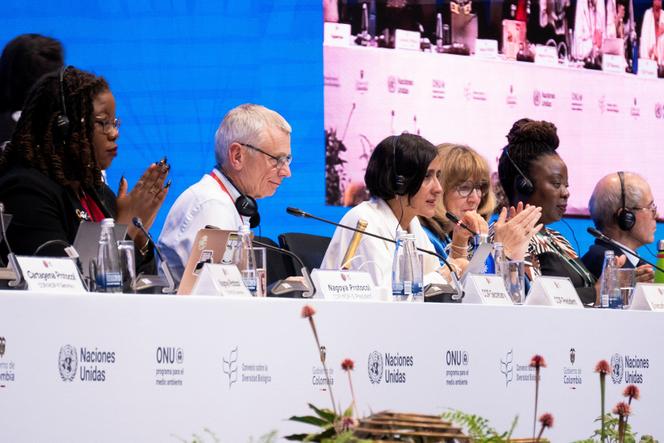


The president of the 16th World Conference on Biodiversity (COP16), Susana Muhamad, had promised that the end of this meeting would be "thrilling." The Colombian environment minister was partly right: The final stretch of negotiations was marked by moments of tension and confrontation, but also by applause and cries of joy, testifying to significant progress.
Above all, the end was particularly abrupt. The plenary session came to a sudden halt on the morning of Saturday, November 2, after the United Nations Convention on Biological Diversity (CBD) had established that a quorum necessary for voting was no longer present. Some of the representatives from some 200 countries had already had to leave Cali the day after the official end of the conference. "I am the last representative of my delegation," said Panama's spokesman.
Presented as the "COP of implementation," intended to ensure that the promises made by States in favor of nature are put into practice on the ground, COP16 ended without a decision on two of the most crucial issues at stake in the negotiations: Neither the question of mobilizing financial resources nor that of a global framework for monitoring and evaluating progress were discussed.
"If decisions have not been adopted, it's because there's still not enough trust and understanding between states," said Muhamad just after suspending the COP with a gavel bang. "But on the other hand, there were other very difficult decisions, on marine areas, genetic resources and indigenous peoples, and the countries managed to make them." "This end to the COP feels like there is unfinished business," said Moumouni Ouedraogo, the representative of Burkina Faso. "Even if there have been some notable advances, we leave with the feeling that we haven't completed our work."
Two years after the adoption of unprecedented commitments at COP15 in Montreal (Canada) to combat the collapse of living things, such as protecting 30% of land and seas or halving the risks associated with pesticides, COP16 was intended to speed up efforts. From Cali, UN Secretary-General Antonio Guterres reiterated the extent to which the collapse of biodiversity constitutes an "existential crisis."
Nearly one in three tree species is threatened with extinction, wild vertebrate populations are declining extremely steeply and three-quarters of the planet's land has been altered, all due to human activities. "Biodiversity is humanity's ally. We must move from plundering it to preserving it," said Guterres. "We must now turn these promises into action."
You have 73.64% of this article left to read. The rest is for subscribers only.
